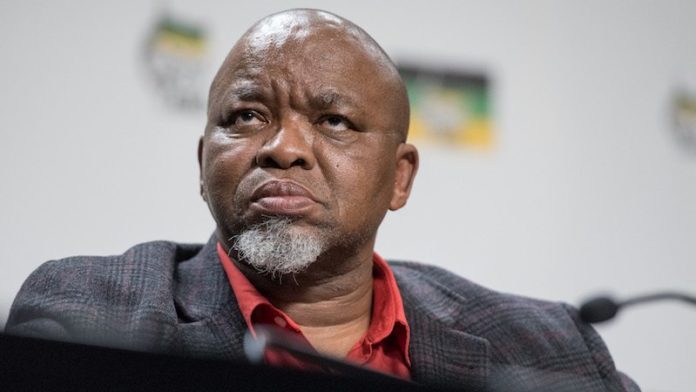
SOUTH Africa mines minister, Gwede Mantashe, declared the negotiating team discussing changes to the country’s Mining Charter was “80% there”, and would be concluded with the process of shaping an improved regulatory framework for the sector by end-May.
“Let’s finish with the Charter and gazette it and adjust the legislation,” he told media on the sidelines of the Joburg Indaba Platinum Industry Seminar organised by Joburg Indaba. “We are 80% through; by May, we will produce a Charter,” he said.
He added that the Department of Mineral Resources (DMR) would not appeal a High Court ruling last week that mining companies were not required to ‘top-up’ the leve of their black economic empowerment shareholdings, even if they had fallen below the 26% stipulated in the Mining Charter.
“We won’t appeal,” he said in response to questions. “We are engaging and we will come up with a formulation with the Chamber,” he said. Importantly, however, he added that there should not be “… blanket recognition of past deals” before declining to speculate on the matter further. In response to a later question, he said that compliance with the Mining Charter ought to be done on a “case by case basis”. “If we have to go to court every day, then so be it,” he added.
A full bench of the High Court agreed with the Chamber of Mines which had asked it for a declaratory order that previous empowerment deals ought to be recognised as compliant with the Mining Charter even if partners had traded out of their positions, or transactions had failed by dint of market forces. The ruling has been described by analysts as a massive moment in terms of establishing regulatory certainty in South Africa’s mining sector.
CALL FOR UNITY
Addressing a platinum industry breakfast ahead of the conference, Mantashe said that in the first 44 days since his appointment as mines minister, he had found “.. an industry in self-doubt which is about to die”.
“I found an industry where suspicion and distrust is at the highest level. Nobody trusts nobody,” he said. “When someone walks into a room, other people start to whisper. So the first thing to work on is to develop trust among ourselves. As a mineworker who goes underground, your life depends on the next person so your life as a miner is one of trust.”
Mantashe also controversially questioned whether the platinum sector was in crisis, saying that at $1,000/oz, the price of platinum was high enough to support the industry. His view is that had mining companies fostered a better relationship with labour, it would have been in a better position today.
“My diagnosis of the crisis in platinum is the relationship with workers. When you are tied [in distress], they want you to behave normally, but when you have a relationship, they are your partners [in difficult economic conditions]. The wave of strikes in the industry tells you about the relationship between workers and companies,” he said.
Bernard Swanepoel, a former gold mining CEO and prominent industry participant, said in an opening address to the conference that the platinum sector was in a worst position than the gold sector when it formed the Gold Crisis Committee in 1999 as the dollar price of gold slid to multi-year lows of about $255/oz.
However, Swanepoel acknowledged the importance of Mantashe’s appointment to the mining brief in cabinet. “We have never had a political heavyweight [as mines minister]. So never has it been more important to have the second most senior ANC member being deployed as mines minister,” he said.











